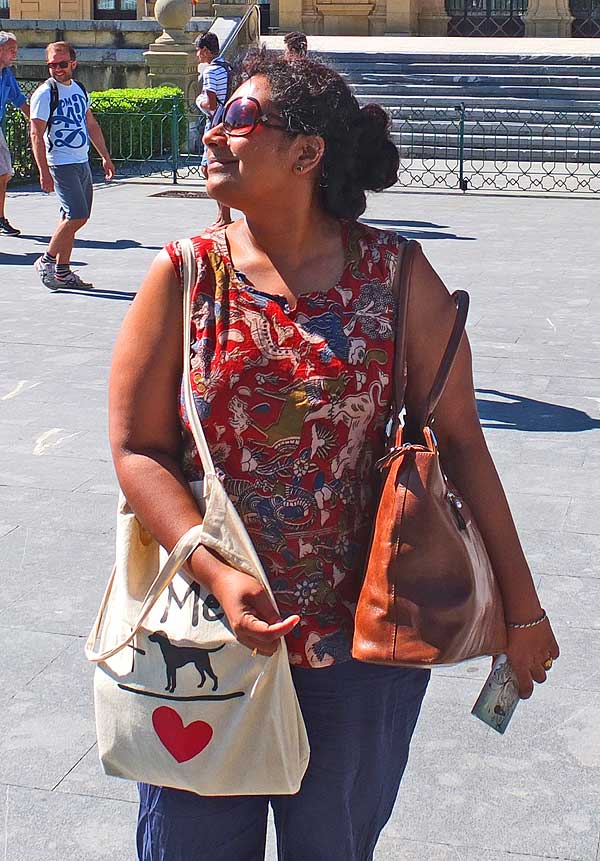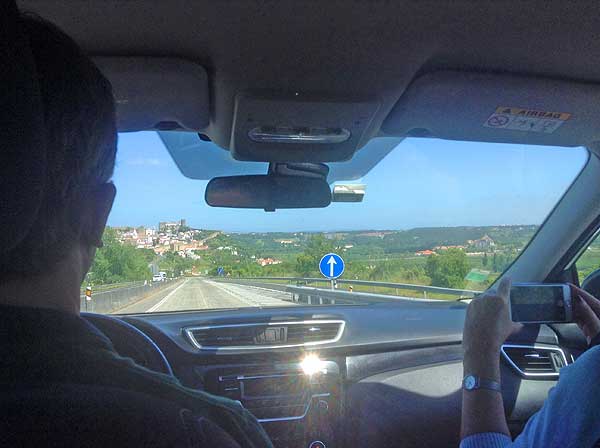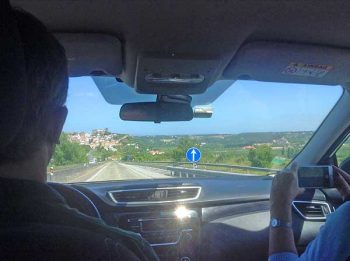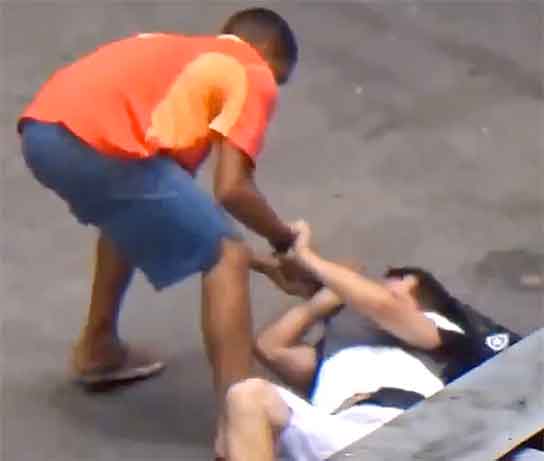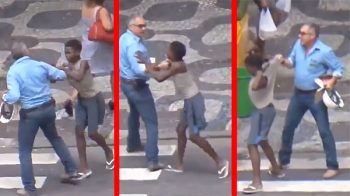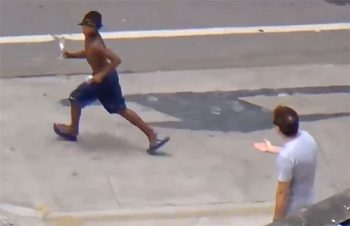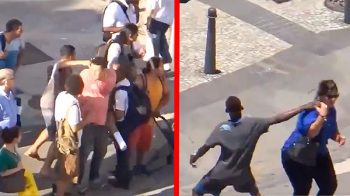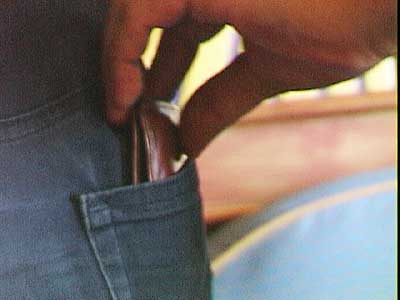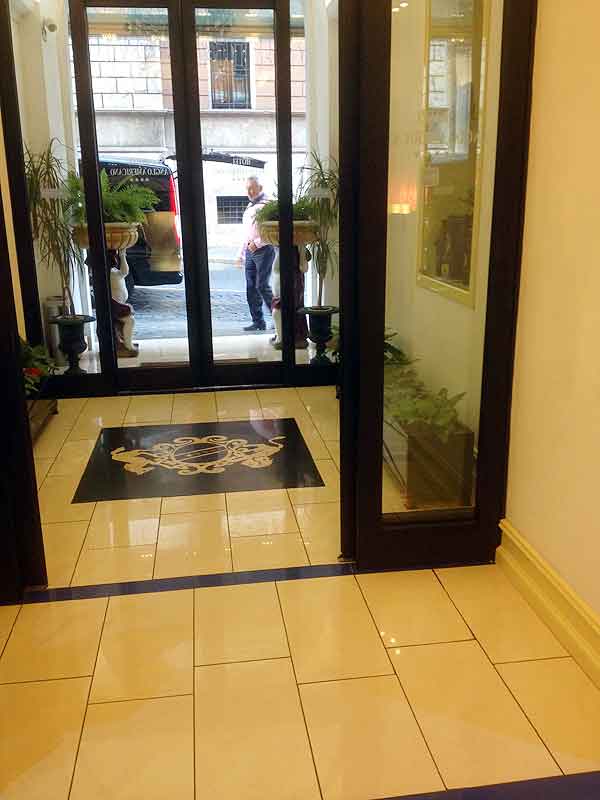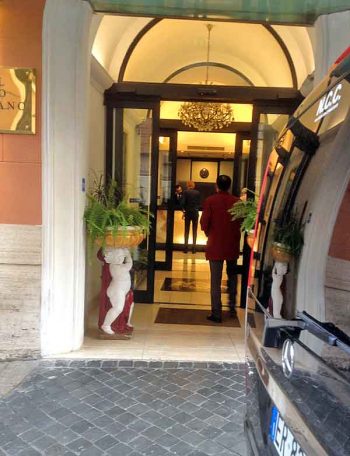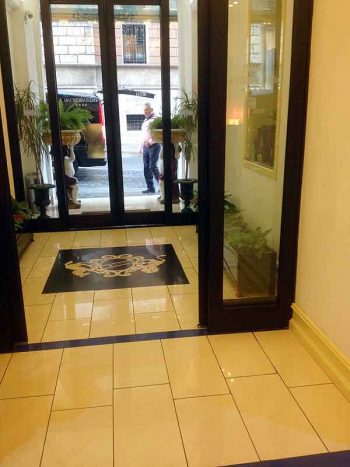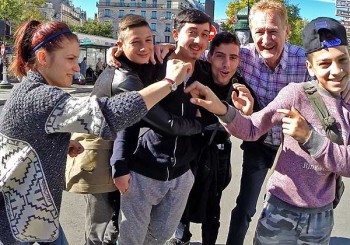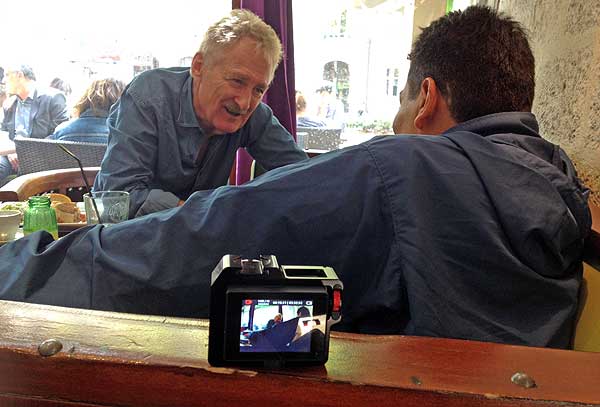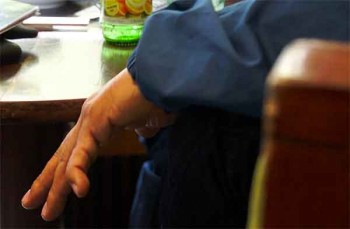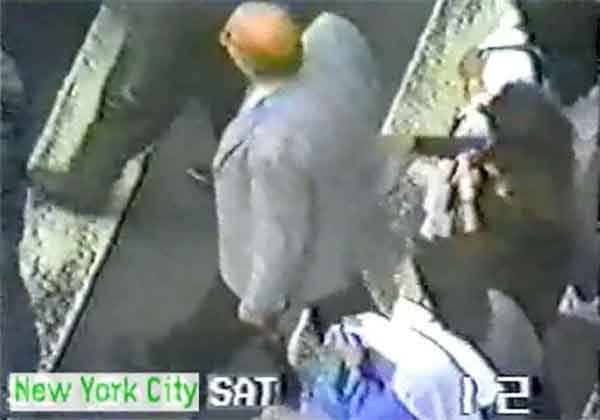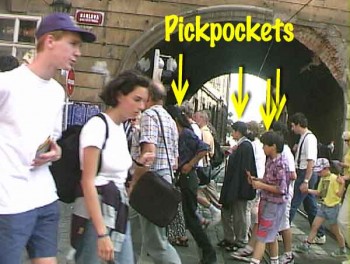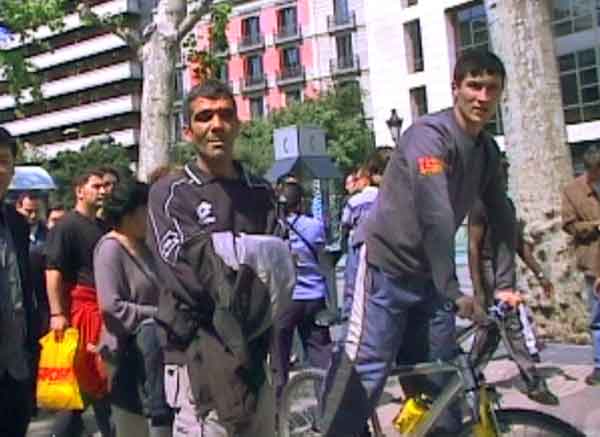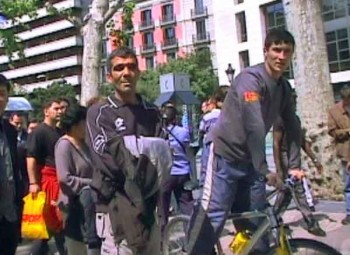
The loss of a valuable shoulder bag stolen in Barcelona was devastating to the victim. The bag had been on the floor beside her chair in a café. The theft happened in just a moment’s lapse of attention.
My name is Rashmi Raman. I am a 32-year-old Indian woman from Delhi where I am law professor (yes, the irony of being a lawyer and getting robbed is not lost on me).
My handbag containing 2,200 euros, 800 USD and a few hundred British Pounds along with a lot of other currency souvenirs from my travels and all my bank cards and national identity cards, passports (old and current), yellow fever certificate (from my time in Africa) and my journal, a book, personal cosmetics and electronics was robbed from right next to my chair while I had a morning coffee with a colleague at No. 3, Calle Pelai in Barcelona at 10.40 AM on Friday July 22.
Bag stolen in Barcelona café
The café we were sitting inside was Subway, right across the street from our hotel. I wouldn’t normally have had all my money and papers on me for just stepping out for a coffee though I have been traveling with all this on me for years now. I don’t know how to rationalize what happened to me but I guess it’s just really really rotten luck.
I filed a police report immediately at the underground precinct at Plaça Catalunya. The next day I went back to the café to meet the owner and request to see the CCTV footage. He was kind enough to show it to me. I watched in horror as the CCTV footage clearly showed a white man, dressed in checks, calmly grab my brown leather bag, throw something white over it and walk out of the café. Ten seconds later I saw myself leaping up in panic on the video.
I don’t know how I survived it… My life has been a nightmare the past weeks since then. Getting back to India without a passport and no money was hellish. I don’t know how long it will take me to come to terms with everything I lost that day.
What inhuman madness would possess someone to steal every scrap of my worldly belongings and leave me destitute and without identity in a foreign country where I don’t speak the language? Why couldn’t he have had the courage or decency to return my passport and identity cards to the hotel? The hotel’s key card was in the bag. It is not too difficult to understand what hell you are unleashing on unsuspecting tourists by robbing them like this.
I will never see again the familiar pages and the many beloved stamps on my passports. I cannot understand what use they are to him? He probably threw away everything except the cash. He threw away the hard-earned records of my whole life.
Don’t blame the restaurant—thieves are everywhere!
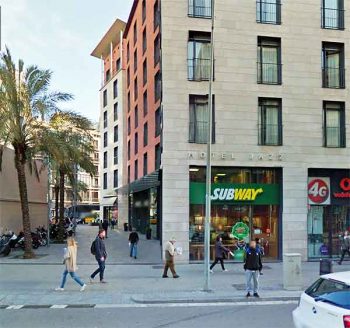
I felt really silly actually going to Subway for a coffee that morning—in a month of traveling in Spain that was the first and only morning I chose a chain restaurant over the dozens of much more charming local cafés… I can’t imagine what got into me to go to Subway that day.
I was staying at the Catalonia Ramblas which is across the street from the Subway on 3, Calle Pelai. The hotel staff were really amazing and helped me file the police report, translated for me, and were a huge support.
I’m using my real name in case the thief ever reads this and he has all my ID (as well as my personal journal). Perhaps nobody knows more about me than he does!
Thanks for the work you are doing documenting theft in Barcelona and giving victims like me a space to vent—it is much appreciated.
— Rashmi Raman
I feel for Rashmi. I, too, often carry a loaded shoulder bag when I travel. And that’s despite everyone’s advice—including my own—to leave it in the hotel room. Sometimes the room isn’t ready. Or you don’t feel great about the security in the room. Or you need that cash or those documents with you. Sometime, you just need to carry your stuff.
In those cases though, there’s one rule I never, ever break: keep physical contact with the bag. It’s big and heavy, but it stays on my lap. Or tight behind my back on the chair. Or maybe with my foot through the straps (very rare). Even that practice is not failsafe—bag snatchers may rip and run. I never, ever hang my bag on the back of a chair. My husband, Bob Arno, is a white-hat pickpocket. Watch him easily steal items from customers in a café.
For almost every bag stolen in Barcelona, and there are many, there’s a rule broken. I said almost. Read the horror story about the bag stolen in Barcelona right off a woman’s lap!

